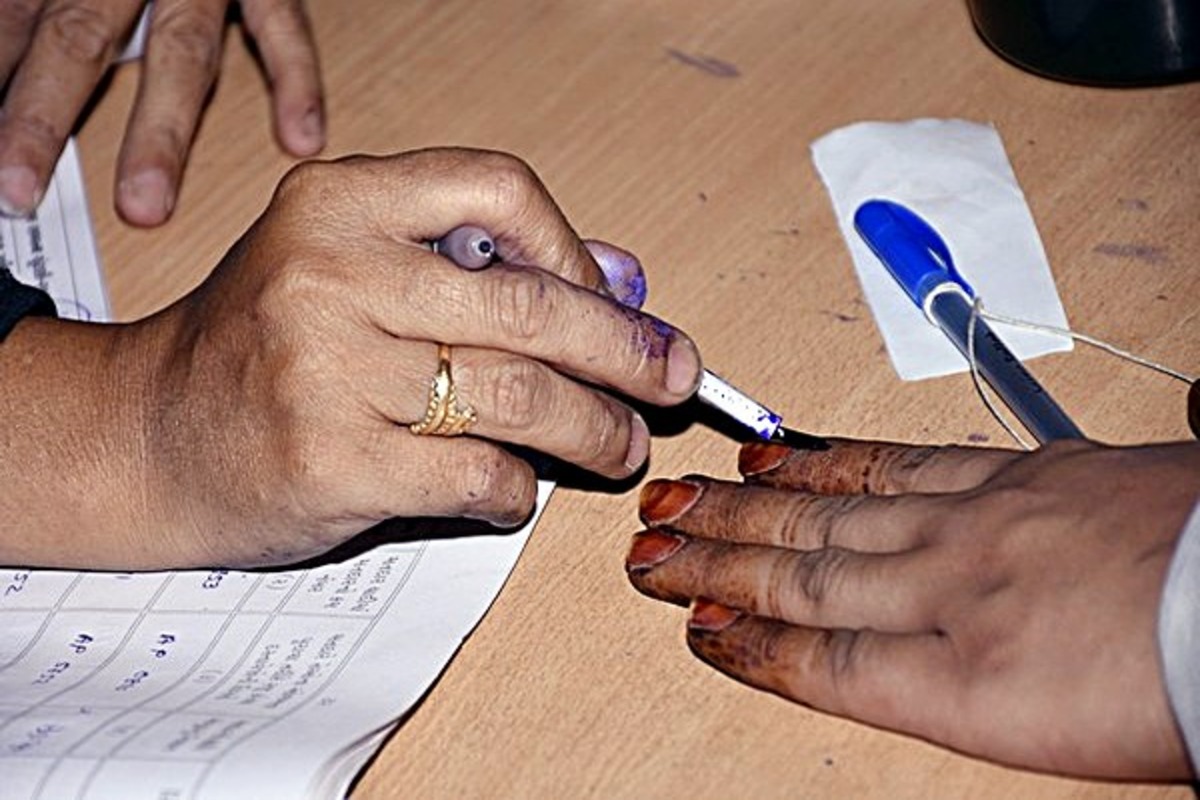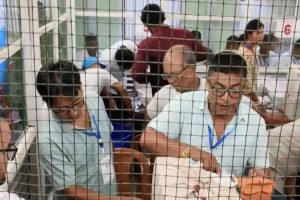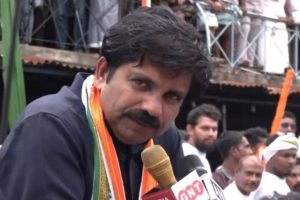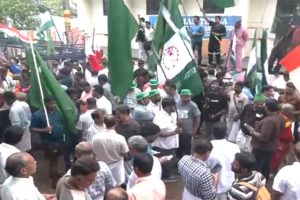The counting of votes for 199 out of 200 assembly seats in Rajasthan began on Sunday morning after days of intense campaigning by major political parties including the ruling Congress and the Bharatiya Janata Party (BJP).
Rajasthan went to the polls on 199 of 200 assembly seats on November 25. The majority mark in the state is 100.
In the Karanpur constituency, elections were adjourned due to the passing of
Congress candidate Gurmeet Singh Koonar.
The state chief election officer Praveen Gupta on Saturday said that around 4,180 rounds counting of the EVMs will take place at 36 counting centres across the 199 constituencies of Rajasthan and the postal ballots will be counted first.
The state has around 52 million electoral population of whom 74.62 per cent voted through the EVMs on November 25 while around 0.8 per cent voters polled their political choices through home-voting and postal ballots.
The exit polls have reinforced the perception of a hard contest in Rajasthan, with differences in their prediction of the winner in the crucial Hindi heartland state that has a nearly three-decade tradition of not repeating an incumbent government.
While three exit polls predicted the BJP to be the clear winner, two others showed Congress was ahead in the sweepstakes to form the next government in the state.
Today’s Chanakya said that ‘development’ influenced 37 per cent in Rajasthan, while ‘political party and candidate’ had a significance of 28 per cent.
In Rajasthan, the survey said that Congress+ got the support of 32 per cent of members from the Jat community and the BJP got 38 per cent. It said the figure was 58 per cent and 31 per cent for the SC community for Congress and BJP, respectively; 46 per cent and 36 per cent for Meena and STs, 83 per cent and seven per cent among Muslims, 26 per cent and 53 per cent among Brahmins, 29 per cent and 47 per cent among Rajputs and 28 per cent and 48 per cent among OBCs.
BJP and Congress are engaged in an intense fight with both parties seeking to outdo each other in terms of poll promises.
Chief Minister Ashok Gehlot (Sardarpura), former chief minister Vasundhara Raje (Jhalrapatan), former deputy chief minister Sachin Pilot (Tonk), state PCC chief Govind Singh Dotasra (Lachhmangarh), RLP convenor Hanuman Beniwal (Khinvsar) are some of the key faces among the 1,862 candidates in the fray.
Sardarpura is on the list of key constituencies as Chief Minister Ashok Gehlot has won this seat since 1998. The Bharatiya Janata Party has fielded Mahendra Singh Rathore from the Congress’ bastion.
The Congress government in the state led by Chief Minister Gehlot unleashed a series of populist schemes closer to the assembly election to ward off the challenge from the BJP.
Many rebel candidates of BJP and Congress withdrew their names after persuasion. But still, around 45 rebel candidates from both parties are in the fray. These also include MLAs, former MLAs and party officials.
The role of smaller parties is also crucial. BSP has won seats in the state. Aam Aadmi Party is also in the fray. The smaller parties include the Rashtriya Loktantrik Party, Bharatiya Adivasi Party, CPI-M, Jannayak Janata Party and Azad Samaj Party.
Violence against women, paper leak scam, farmers’ suicides are some of the key issues that were highlighted by the opposition BJP to strike against the ruling Congress. CM Gehlot has reaffirmed that Congress will return to power, putting an end to the three-decade-old alternating government trend in the western state.
Prime Minister Narendra Modi during his campaigning in the state hit out at the Congress leadership, accusing it of indulging in ‘dynastic’ politics and said that the grand old party strives to ‘punish’ its leader Sachin Pilot for his father’s revolt against high command in 1996.
A total of 5,26,90,146 voters will decide the fate of the candidates at a total of 51,890 polling stations in the assembly constituencies.
1,70,99,334 young voters in the 18-30 age group will vote, including 22,61,008 new voters in the 18-19 age group.
In 2018, the Congress won 99 seats, while the BJP won 73. Gehlot assumed the CM position with the support of BSP MLAs and independents.
Counting in four other states that went to the polls this month will also begin this morning. The polls, held months before the Lok Sabha polls, are crucial for BJP and Congress for various reasons.





